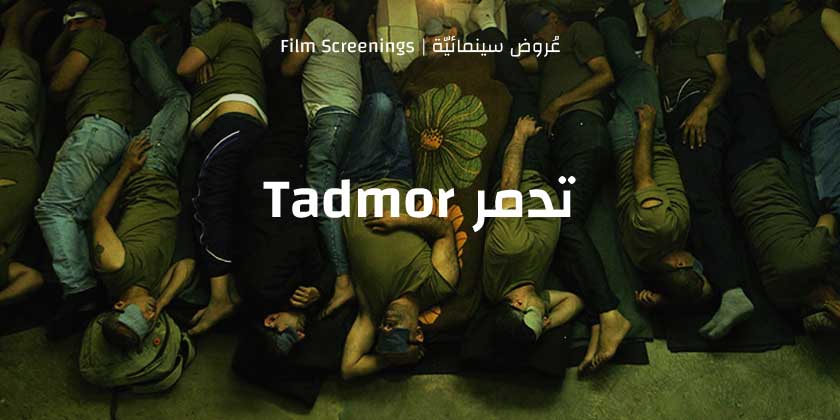
Image: Still from the film "Tadmor" by Monika Borgmann & Lokman Slim
TADMOR (PALMYRA)
Screening & Discussion with Ali Abou Dehen
University of Giessen, Germany
OCT 12, 2022
The conference "Prisons Beyond Punishment: Exploring Political Technologies of Confinement" was held in Giessen, Germany from 12-14 October, 2022. The conference started on the evening of October 12 with a screening of “TADMOR,” a film by Monika Borgmann and Lokman Slim. The film includes interviews with and re-enactments of the experiences of Lebanese individuals who were held in Syrian prisons. In the Q&A session after the screening of the film, one of the protagonists Ali Abou Dehen shared additional details of his time in prison and the process of making the film. He credited the process and development of the documentary to the work and effort of the directors Borgmann and Slim. For example, he noted how when the participants in the film felt strongly about not using actors or external individuals to play the roles of the prison guards, the decision was made instead to allow one another to play these roles in order to keep the process of showing their treatment and beatings internal to those who experienced these conditions.
In his talk, Abou Dehen elaborated on the experience of being incarcerated for 13 years and the elements of life he missed out on while imprisoned in Syria, from raising his daughters to understanding new forms of technology. He also shared further details about the physical and psychological torture he suffered that ultimately led to his forced confession. Abou Dehen additionally evoked a need to reconcile the film with the present day, noting that there are still thousands of Lebanese being held in Syrian prisoners, including ones whose fates are unknown. He noted that speaking about the Lebanese experience in Syrian prisons inherently also articulates the experience of Syrians held in the same sites. He mourned the loss of some of the members of the film, as four of the men in the film have now passed away, including one of the directors, Lokman Slim.
The Q&A included questions on how Abou Dehen and the others could be persuaded to speak about their experiences. He described how he had been speaking about his time in prison in Syria since 2001, and over the years, as other ex-prisoners saw that he was not being targeted for speaking out, they began to feel more comfortable joining him. He noted the formative prison had on him in motivating him to speak about his experiences and those of others, as he felt it was important to speak about the treatment and conditions they suffered, in order to play a role in showing the horror of the situation in Syrian prisons. He also shared the importance to him of his family’s support for his speaking out and activism.
Abou Dehen further noted that the Lebanese who were detained in Syria and since returned have been continually lacking in needed support, ranging from physical, mental, emotional, and financial support services. He noted the difference in approach and treatment of Lebanese who had been arrested and detained by Israel than by Syria: the former were provided with support and services, and considered heroes to the country, while the latter have been ignored and treated with suspicion. He ended the talk with a call for increased recognition and support for these individuals for the trauma they suffered at the hands of the Syrian regime.